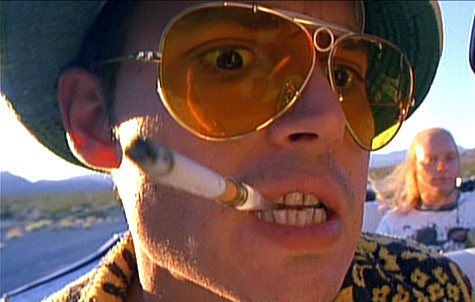Climbers for Bat Conservation
|
|
To the Colorado climbing community, |
|
|
|
|
|
The website says climbers can help by submit bat sightings, but it doesn't say where or how we can submit this data? |
|
|
aikibujin wrote:The website says climbers can help by submit bat sightings, but it doesn't say where or how we can submit this data?This link will take you the Climbers for Bat Conservation project webpage supported by iNaturalist.org, you will need create an account to add an observation. inaturalist.org/projects/cl… |
|
|
This is a great program. |
|
|
Ben Scott wrote:Nothing to do with closing climbing areasI think you are being incredibly naive. Why don't you ask the caving community how 'helpful' the bat scientists were in closing caves? |
|
|
Mark E Dixon wrote: I think you are being incredibly naive. Why don't you ask the caving community how 'helpful' the bat scientists were in closing caves?I would not recommend showing any of these folks any climbing areas where a bat might exist. Seen far too many closures in my neck of the woods because of this. |
|
|
Cave closures were taken as a proactive measure in response to the rapid spread of a fungal disease known as white-nose syndrome (WNS). Here's some WNS info taken from a scientific article. "Since it was first discovered in New York State during the winter of 2006–07, WNS has since spread to 27 additional states and five Canadian provinces, and is known to affect at least seven species of hibernating bats. Mortality rates vary considerably among species but can be very high (>90% for little brown bats, Myotis lucifugus, and northern long-eared bats, M. septentrionalis), and cumulative mortality of all affected bat species has been estimated at 5.7 to 6.7 million individuals as of January 2012". ncbi.nlm.nih.gov/pmc/articl… |
|
|
andrew.reed wrote:The goal here is not to create closures.Just a by-product. |
|
|
andrew.reed wrote: The goal here is not to create closures. If you choose not to share your observational data, that is your decision.Caves were closed for several years here in Colorado, and as far as I know, are still only partially open, despite the fact that White Nose has never been found here, and the closest approach was in Oklahoma and that case was very questionable. Nevertheless, bat scientists here in Colorado sent countless letters to state and federal officials successfully advocating widespread closures. Bat scientists do not care about climbing access. Do not kid yourselves- they will invoke the precautionary principle and close your crag for the slightest excuse. I like bats. I'd like to see them protected. But the way cavers were treated was not reasonable and I don't believe anything has changed. I don't want to see climbers hit next. |
|
|
Ben Scott wrote:.... biologists are really great people to work with....Like at Ralston Buttes. mountainproject.com/v/ralst… If you see a bat while climbing. 1. Enjoy it but give it space. 2. Take a picture 3. Keep it to yourself. |

 Continue with onX Maps
Continue with onX Maps Continue with Facebook
Continue with Facebook




















